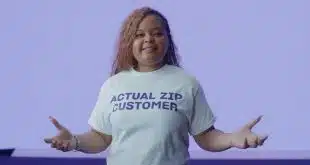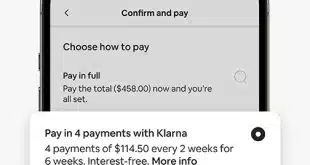Two bitter rivals in the biometric-payments arena have merged to helped spur adoption of the technology among merchants. Tim Robinson, chief executive of BioPay LLC, which will shortly become part of its largest competitor, Pay By Touch Solutions, as the result of a deal announced today, says the longstanding rivalry between the companies?which took a nasty turn early this year when litigation flared between the two over patent infringement?was holding back both in their efforts to sell fingerprint-authentication systems to merchants. The merger, he says, clears away the litigation and allows both to concentrate on pushing biometric technology. “I'm excited to move the market faster toward adoption of the technology, not to pay lawyers but to change the marketplace” he says. Pay By Touch's $82 million acquisition of Herndon, Va.-based BioPay is the latest in a string of deals the San Francisco company has executed in recent weeks. In October, it outbid CyberSource Corp. to acquire the assets of troubled merchant processor CardSystems. And just last week it struck a deal to buy Capture Resource, a provider of loyalty-program management solutions to merchants. The deal also comes as at least some grocers and other retailers are starting to look more favorably on fingerprint-authentication?which allows merchants to channel consumer payments to the automated clearing house rather than more expensive credit and debit cards?in the midst of rising controversy over bank card acceptance costs. Robinson says details of the merger came together in a matter of days and stemmed from discussions he had with his chief competitor about the patent litigation between the two companies. In January, BioPay sued in federal court for a declaratory judgment that it did not infringe on Pay By Touch's patents, which cover, among other things, so-called tokenless payments. Pay By Touch later responded with a lawsuit charging BioPay with infringement. BioPay holds three patents, with more than 30 pending. Pay By Touch holds 24. “We entered into discussions to settle the lawsuits between us because we're both paying lawyers gazillions of dollars, and it's a waste of money,” Robinson says. “Pay By Touch said it's slowing consumer adoption if we fight each other, so why not work together? [The deal] came together in five days.” Robinson says the rivalry between the firms, which was usually fierce, was also hampering merchant adoption. “That was self-evident,” he says. “We heard it from prospective customers.” One important difference between the two companies is that, while Pay By Touch has adopted a centralized warehouse approach, storing mathematically derived consumer fingerprint templates in a central database, BioPay houses the templates locally for each merchant or chain. Robinson says the two companies can now work out how to resolve the two models, which should ease sales to merchants now that they don't have to risk investing in a system that may make switching later expensive. “It makes it easier for merchants to make a buying decision,” he says. Nor did the intellectual-property dispute help when it came to signing merchants. That dispute, Robinson says, goes away now that the two litigants are one company. In biometric payment systems, consumers enroll by linking a fingerprint to a payment account or set of accounts. Each subsequent payment can then take place with the consumer touching her finger to an in-lane sensor. In theory, several accounts, including checking and card accounts, can be designated by consumers, but in practice many merchants have allowed only checking accounts in an effort to bypass interchange and other card costs. Robinson, who was the majority shareholder in the employee-owned BioPay, says he will continue running the organization as part of Pay By Touch, though his precise role in the merged entity has not been worked out. “My goal is to keep the ship moving forward,” he says. BioPay, which was an early leader in biometrically secure payroll check cashing and has lately been pushing in-lane payments, has more than 2 million enrolled consumers and 1,600 installed locations. Pay By Touch, which has had some success with larger chains, including two of the top five grocers, has advocated in-lane payment from its start. It says it now has 7,000 stores under contract for its payment product. Its acquisition of BioPay is expected to close in a few weeks.
Check Also
Airbnb Expands Reserve Now, Pay Later Globally
Airbnb Inc. has expanded its Reserve Now, Pay Later booking option worldwide. The service enables …






